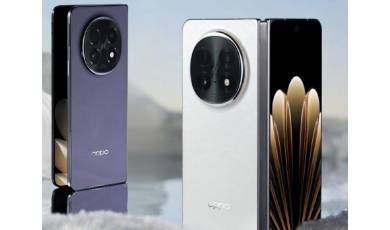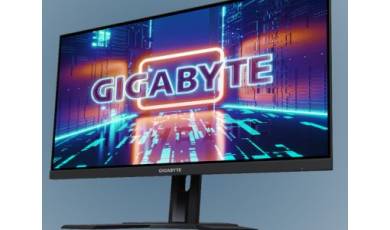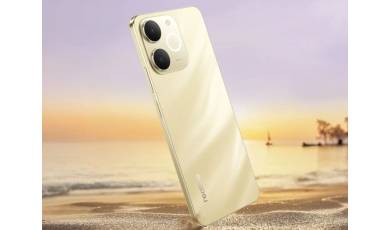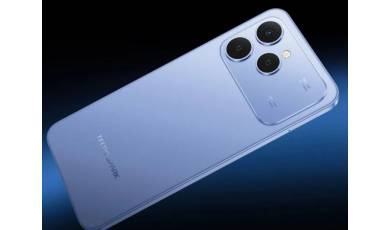Cyrus CS45 specs.
Mobiles >> Cyrus >> Cyrus CS45| Specifications | Reviews | Secret codes |
| Unlock phone | Root phone |
| Backup | Flash Firmware | Screenshot |
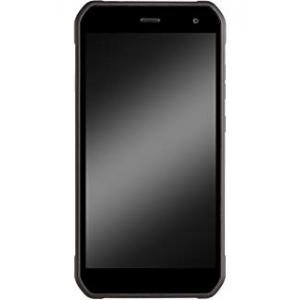
Design Cyrus CS45
Colors:
Black
Dimensions:
77 x 155 x 12 mm
Weight:
190 g, 0.42 lbs, 6.7 oz
Body materials:
Plastic
Network Cyrus CS45
2G: Second generation cellular network
Second generation cellular network
GSM 850 MHz, GSM 900 MHz, GSM 1800 MHz, GSM 1900 MHz
3G: Third generation cellular network
Third generation cellular network
UMTS 850 MHz, UMTS 900 MHz, UMTS 1700/2100 MHz, UMTS 1900 MHz, UMTS 2100 MHz
4G: Fourth generation cellular network
Fourth generation cellular network
LTE 700 MHz Class 17, LTE 800 MHz, LTE 850 MHz, LTE 900 MHz, LTE 1700/2100 MHz, LTE 1800 MHz, LTE 1900 MHz, LTE 2100 MHz, LTE 2600 MHz, LTE-TDD 2300 MHz (B40), LTE 700 MHz (B12), LTE 700 MHz (B28), LTE 2300 MHz (B30), LTE 1700/2100 MHz (B66), LTE 600 MHz (B71)
SIM:
Nano-SIM / microSD, Nano-SIM
Display Cyrus CS45
Type:
IPS
Display Colors:
24 bit, 16777216 colors
Size:
5.2 in, 132.08 mm, 13.21 cm
Screen-to-body ratio:
62.66%
Screen Resolution: Screen resolution refers to the size of the image received on the screen in pixels
Screen resolution refers to the size of the image received on the screen in pixels
1080 x 1920 pixels
Pixel Density:
424 ppi, 166 ppcm
Protection:
Corning Gorilla Glass 3, GFF full lamination
Display features:
Multi-touch, Capacitive, Scratch resistant
Camera Cyrus CS45
Primary:
4608 x 3456 pixels, 15.93 MP
Flash:
LED
Video Recording:
1920 x 1080 pixels, 2.07 MP at 30 fps
Secondary:
3264 x 2448 pixels, 7.99 MP
Camera Features:
Continuous shooting, Autofocus, Geotagging, Digital zoom, HDR, Panorama, Face detection, Touch focus, ISO settings, White balance settings, Self-timer, Exposure compensation, Scene mode
Media Cyrus CS45
Video Playback:
3GPP, AVI, H.263, H.264 / MPEG-4 Part 10 / AVC video, H.265 / MPEG-H Part 2 / HEVC, MP4, VP8, VP9, Xvid
Audio Playback:
AAC, AAC / aacPlus / HE-AAC v1, AMR / AMR-NB / GSM-AMR, AMR-WB, eAAC / aacPlus v2 / HE-AAC v2, FLAC, MIDI, MP3, OGG, WMA, WAV
Ring Tones:
Earpiece, Loudspeaker
FM Radio:
Yes
3.5mm jack:
Yes
Software Cyrus CS45
Smart Phone OS: An operating system (OS) is software that interacts between a user and a smartphone.
An operating system (OS) is software that interacts between a user and a smartphone.
Android 9.0 Pie
Hardware Cyrus CS45
Chipset: Is a set of chips in the smartphone that control the CPU.
Is a set of chips in the smartphone that control the CPU.
MediaTek Helio P23 (MT6763T)
CPU: Central processing unit
Central processing unit
2300 MHz Octa-core
GPU: Graphics Processing Unit
Graphics Processing Unit
ARM Mali-G71 MP2 770 MHz
RAM: Random Access Memory
Random Access Memory
4 GB
Internal Storage:
64 GB
Card Slot:
microSD, microSDHC, microSDXC
Sensors:
Light, Proximity, Accelerometer, Magnetometer, Fingerprint
Connectivity Cyrus CS45
Bluetooth: Bluetooth is used to exchange data between nearby mobile devices.
Bluetooth is used to exchange data between nearby mobile devices.
A2DP
Wi-Fi: Wireless lan technology
Wireless lan technology
802.11a, 802.11b, 802.11g, 802.11n, 802.11n 5GHz, Dual band, Wi-Fi Hotspot, Wi-Fi Direct
GPS: Global Positioning System
Global Positioning System
GPS, A-GPS, GLONASS GLObal NAvigation Satellite System
GLObal NAvigation Satellite System
USB: Universal Serial Bus
Universal Serial Bus
USB Type-C
Other:
Computer sync, OTA sync, Tethering, NFC
Data Cyrus CS45
Speed:
UMTS (384 kbit/s ), EDGE, GPRS General Packet Radio Service, HSPA
General Packet Radio Service, HSPA High Speed Packet Access , LTE Cat 6 (51.0 Mbit/s, 301.5 Mbit/s )
High Speed Packet Access , LTE Cat 6 (51.0 Mbit/s, 301.5 Mbit/s )
Web Browser:
HTML, HTML5, CSS 3
Battery Cyrus CS45
Battery Type:
Li-Ion 4000 mAh
Talk Time:
25 h, 1500 min, 1 days
Features:
Non-removable
Comments, Questions and Answers about Cyrus CS45
Ask a question about Cyrus CS45


